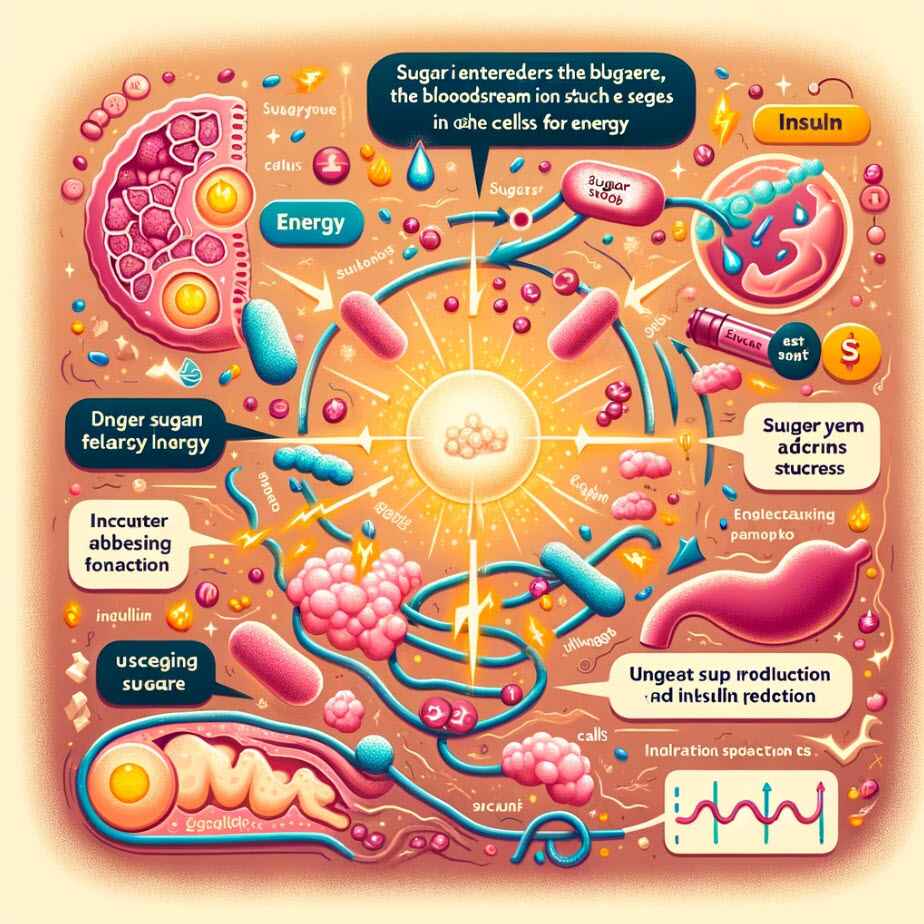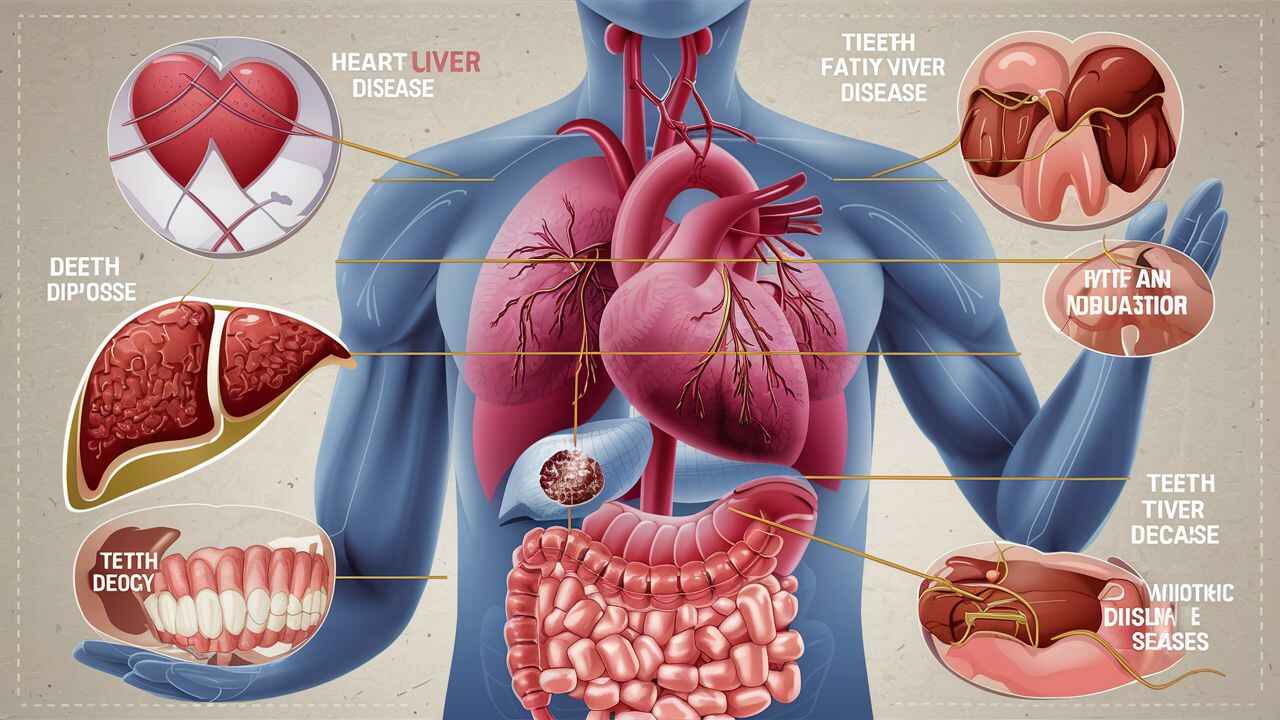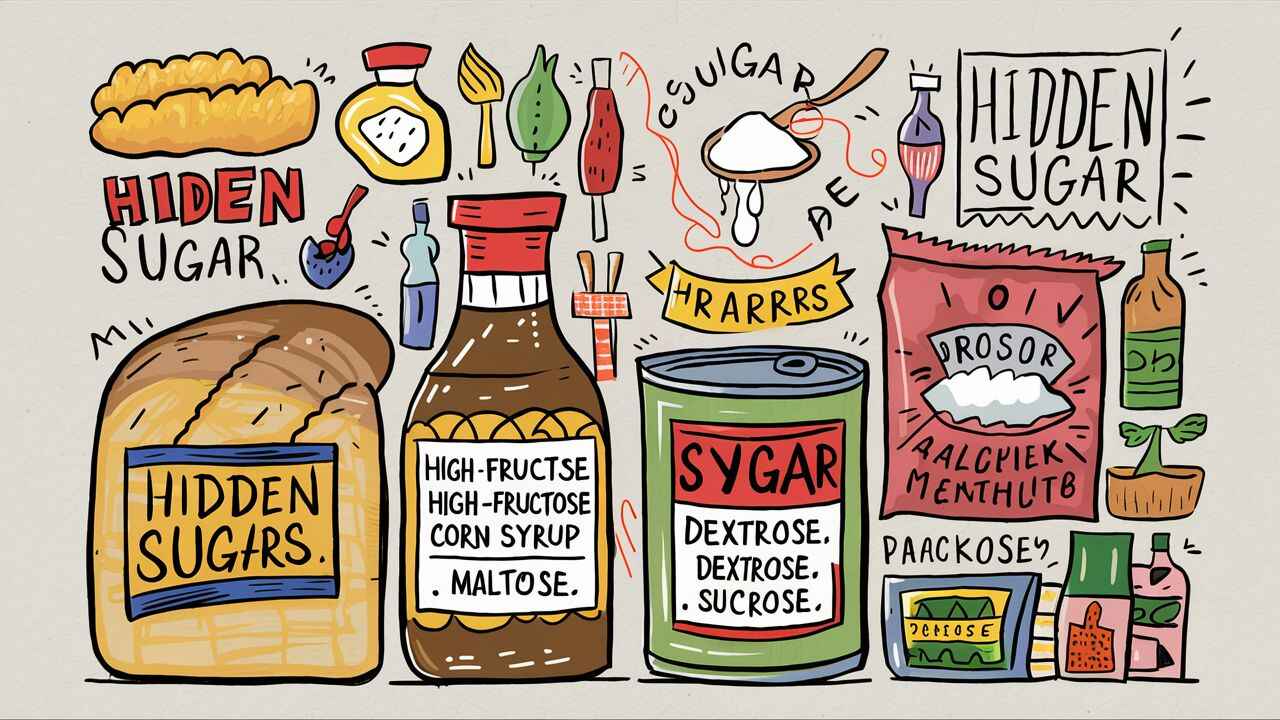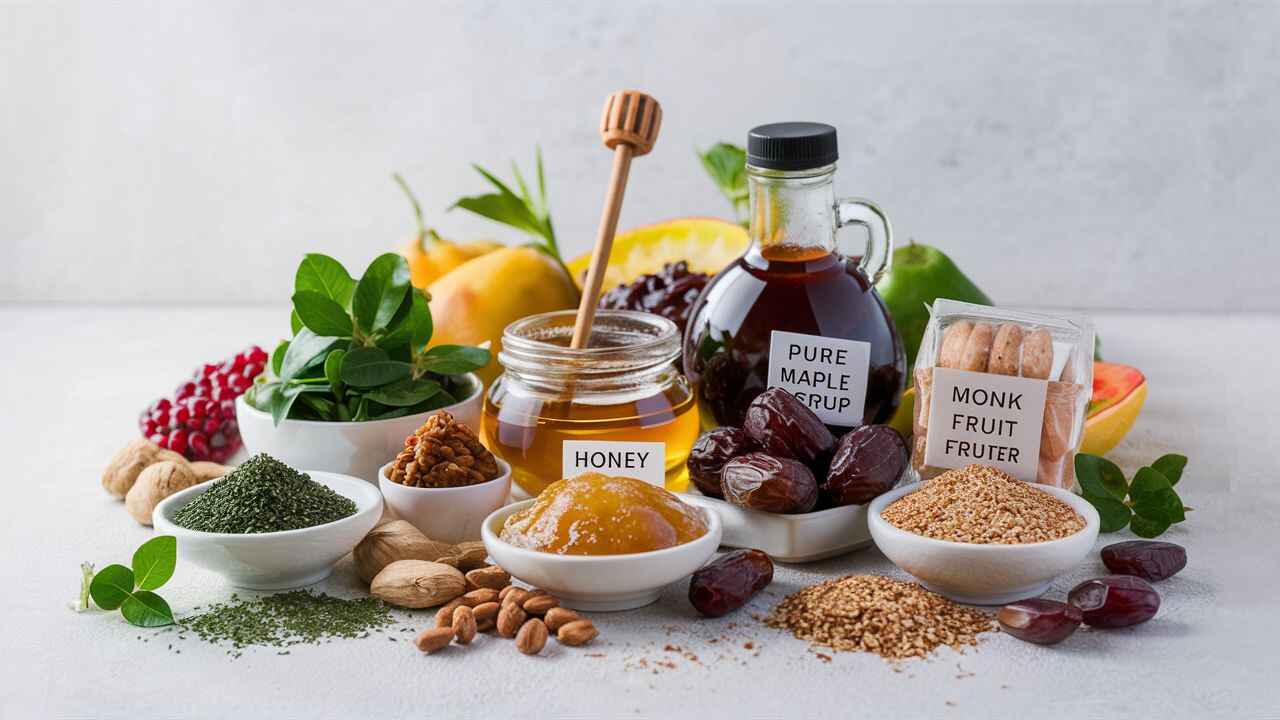Sugar has become an ubiquitous component of modern life. From our morning cup of coffee to snacks we munch on and “healthy” foods we choose under various names, sugar can be found almost everywhere we turn. Though sugar may bring cultural or personal joy, its presence has serious ramifications for health.

Sugar may seem harmless in small doses, but excessive consumption can have adverse health consequences. Understanding its effects is more than simply an issue of diet; it is key for making informed health choices and wellness. Sugar’s effects go well beyond pleasing our palates; they affect everything from our energy levels to the risk of chronic diseases. This article delves deep into the world of sugar, exploring all its aspects—good, bad, and hidden—so as to provide you with all of the knowledge you need to navigate a world saturated with sweet temptations. Come with us as we discover what sugar really does to your body, how to spot hidden sources, and how to make informed choices leading to a healthier, more vibrant existence.
Table of Contents
- Introduction
- The Role of Sugar in Modern Diets
- Purpose of the Article
- What is Sugar?
- Natural vs. Added Sugars
- Types of Sugar
- How Sugar is Processed in the Body
- Sugar’s Role in the Body
- Essential Energy Source
- The Balancing Act
- The Negative Impacts of Sugar
- Weight Gain and Obesity
- Heart Disease
- Type 2 Diabetes
- Tooth Decay
- Liver Disease
- Hidden Sugars and How to Spot Them
- Identifying Hidden Sugars
- Reading Food Labels
- Healthy Alternatives to Sugar
- Stevia
- Honey
- Maple Syrup
- Dates
- Monk Fruit Sweetener
- Conclusion
- Summary of Key Points
- Encouragement for Mindful Sugar Consumption
- FAQs
- How Much Sugar Is Safe to Consume Per Day?
- Can Natural Sugars in Fruits and Vegetables Harm You Like Added Sugars?
- Are Sugar Substitutes Healthier Than Regular Sugar?
What is Sugar?
Sugar, a sweet-tasting carbohydrate, is found naturally in fruits, vegetables, and dairy products, and is also added to a wide array of processed foods. Understanding sugar involves distinguishing between its natural and added forms, as well as recognizing its different types and how our bodies process it.
Natural vs. Added Sugars Natural sugars occur naturally in whole foods such as fruit and milk. Both fructose and lactose contain essential nutrients, fiber and water which help facilitate slow absorption, mitigating spikes in blood sugar levels. By comparison, added sugars such as table sugar (sucrose) or high-fructose corn syrup significantly increase calorie consumption without providing nutritional benefits, leading to various health concerns when consumed in excess.
Types of Sugar
- Glucose: A simple sugar that is an important energy source for living organisms. It is absorbed directly into the bloodstream during digestion, serving as a vital energy source for all body functions.
- Fructose: Found in fruits and honey, fructose is metabolized differently by the body and can only be broken down by the liver, leading to different health implications.
- Sucrose: Common table sugar, extracted from sugar cane or sugar beets, is a combination of glucose and fructose. It is often used in cooking and as an additive in processed foods.
How Sugar is Processed in the Body: On consumption, sugar breaks down into glucose and fructose; glucose enters our bloodstream and is taken up by our cells as energy for production, with any excess stored as glycogen in liver and muscle glycogen stores. Meanwhile, fructose is processed by our liver; when consumed in excess, particularly in liquid form without adequate fiber content, such as fruit pieces such as juices, it may overwhelm it leading to metabolic issues including fatty liver disease or insulin resistance.
Understanding the nuances of sugar’s types and its effects on the body is crucial for making informed dietary choices. While sugar in moderation is part of a balanced diet, excessive intake, particularly of added sugars, can have detrimental effects on health, underscoring the importance of mindful consumption.
Sugar’s Role in the Body

Sugar plays a pivotal role in our body’s function, primarily as a source of energy. When we consume foods containing carbohydrates, our body breaks them down into simple sugars, glucose being the most notable among them. This glucose is then absorbed into our bloodstream, where it’s transported to our cells to be used for energy. This process is vital for maintaining the energy levels necessary for all our bodily functions, from physical activity to the continuous work of our organs and tissues.
However, the role of sugar in our body is a delicate balance. While it provides the quick energy our cells require, not all sugars exert the same effects. For instance, the fructose found in fruit, due to its accompanying fiber, has a different impact compared to the fructose in sweetened beverages. The fiber slows the absorption of sugar, preventing the spikes in blood glucose levels that can lead to insulin resistance over time.
Moreover, our body’s response to sugar can lead to the storage of excess energy as fat. When we consume more sugar than our body needs for immediate energy, it’s converted into glycogen and stored in the liver and muscles. Once these storage areas are full, additional sugar intake can result in fat accumulation, contributing to weight gain and associated health risks.
Understanding the role of sugar in our body helps underscore the importance of consuming it mindfully. While it’s a crucial energy source, excessive intake, especially of added sugars, can disrupt our metabolic health, leading to long-term consequences.
The Negative Impacts of Sugar

While sugar in moderation is an essential part of our diet, excessive intake can lead to significant health issues. Understanding the negative impacts of sugar is crucial for maintaining a healthy lifestyle. Below are some of the most concerning effects associated with high sugar consumption.
1. Weight Gain and Obesity
Excess sugar, especially from sugary drinks, is a major contributor to the global obesity epidemic. These beverages are high in calories and don’t make you feel full, leading to an increased overall calorie intake. The body stores these excess calories as fat, resulting in weight gain. Obesity is not just about aesthetics; it significantly increases the risk of chronic diseases, including diabetes, heart disease, and some cancers.
2. Heart Disease
High sugar intake is linked to several risk factors for heart disease. Consuming large amounts of sugar can lead to obesity, inflammation, high triglyceride levels, and high blood pressure. Studies have shown that diets high in added sugars are associated with an increased risk of heart disease. A diet lower in added sugars and higher in whole foods can help reduce these risk factors.
3. Type 2 Diabetes
Sugar’s role in the development of type 2 diabetes is well-documented. Over time, excessive sugar consumption can lead to insulin resistance, a condition where your cells stop responding to insulin effectively. This can cause elevated blood sugar levels and ultimately lead to type 2 diabetes. Managing sugar intake, along with regular exercise, can help prevent or delay the onset of this disease.
4. Tooth Decay
Sugar is a leading cause of tooth decay. When sugar is consumed, it interacts with bacteria in the plaque on teeth to produce acid. This acid can erode tooth enamel, leading to cavities. Reducing sugar intake and maintaining good oral hygiene can help protect your teeth from decay.
5. Liver Disease
Excessive consumption of fructose, a type of sugar, can lead to a build-up of fat in the liver. This condition, known as non-alcoholic fatty liver disease (NAFLD), can lead to more serious liver conditions, including cirrhosis. Reducing intake of high-fructose foods, especially sugary drinks, can help mitigate this risk.
Understanding the negative impacts of sugar is the first step towards making healthier dietary choices. By moderating sugar intake and choosing whole foods over processed ones, individuals can significantly reduce their risk of these health issues. Making small changes in your diet can lead to substantial improvements in your overall health.
Hidden Sugars and How to Spot Them

Hidden sugars are pervasive in processed foods, often appearing under names unsuspecting to the average consumer. These added sugars contribute significantly to daily intake, far exceeding recommended levels without providing any nutritional benefit. Learning to identify these hidden sugars is key to managing consumption.
Identifying Hidden Sugars Many processed foods, including those not traditionally considered sweet, such as bread, sauces, and salad dressings, contain added sugars. These sugars come under various names on ingredient labels, including sucrose, fructose, glucose, dextrose, syrup, cane sugar, corn sweetener, and many others. A rule of thumb is to look for words ending in “-ose” and terms including “syrup” or “sweetener.”
Reading Food Labels The nutritional information on food packaging is a valuable tool for spotting hidden sugars. In addition to scanning the ingredient list for sugar’s many aliases, pay attention to the total sugar content listed under “Total Carbohydrates.” Remember, foods with naturally occurring sugars, like dairy and fruit, will have sugar listed but also provide essential nutrients.
Becoming adept at identifying hidden sugars empowers consumers to make healthier choices, reducing the risk of sugar-related health issues and promoting overall well-being.
Conclusion
Understanding the impact of sugar on our bodies is critical for leading a healthy lifestyle. While sugar serves an essential function as an energy source, excessive consumption can lead to obesity, heart disease, type 2 diabetes, tooth decay, and liver disease – making informed dietary choices and decreasing our risk for sugar-related health complications more achievable than ever. Learning how to identify hidden sugars in processed food ingredient labels allows us to make better dietary choices and reduces our risks associated with excessive consumption of sweets.
Adopting healthier alternatives to sugar, such as stevia, honey, maple syrup, dates, and monk fruit sweetener, offers an effective way to enjoy sweetness without risking your health with excessive consumption of refined sweeteners. As with natural sweeteners, moderation remains key and should form the basis of good health in a balanced diet rich in whole foods combined with regular physical activity.
Making small but sustainable changes in our diets can have dramatic effects on our overall wellbeing. By becoming educated on sugar’s effects on our bodies, we can take proactive steps toward creating a future full of knowledge and moderation instead of excess sweetness.
FAQs:
Q1: How much sugar should be consumed daily?
According to the American Heart Association, added sugar consumption should be limited to no more than 6 teaspoons (about 25 grams) daily for women and 9 teaspoons (36 grams) for men – this includes both natural sugars found in fruits and vegetables as well as added sugars that should be restricted for optimal health.
Question 2: Will naturally occurring sugars harm my health just like added sugars?
A2: No. Natural sugars found in fruits and vegetables will not harm your body in the same way as added sugars would.
No, fruits and vegetables contain natural sugars as part of a complex matrix that includes fiber, vitamins, and minerals that work to delay absorption into bloodstream, thus decreasing its impact on blood sugar levels. Consuming whole fruits and vegetables regularly is beneficial to overall health; in comparison, excessive added sugar intake has been linked to various health concerns.
Q3: Are sugar substitutes healthier than regular sugar?
Natural sweeteners such as Stevia, Monk Fruit Sweetener and Erythritol offer sweetness without the extra calories or blood sugar spikes associated with regular sugar, while helping people maintain a balanced and nutritious diet. They should be used with care; some individuals may experience digestive issues due to certain sugar substitutes – so be wary when selecting and using any artificial sweeteners in your diet plan.

